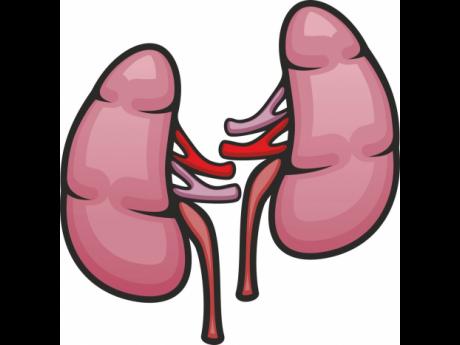Angella Nichol’s battle with kidney disease
AS A young girl, Angella Nichol travelled from the rural parish of Trelawny to Kingston, to pursue her tertiary studies at the then Mico Teachers’ College. She was vibrant and full of life, and had many expectations to be at the top of her career as a teacher. For several years afterwards, she was healthy, and was living life to the fullest.
Then, while a student at the Northern Caribbean University (NCU) in Mandeville, pursuing her Bachelor of Arts degree in Education, she realised she was always feeling drowsy, and had little or no appetite. On one of these occasions, she decided to visit the school’s nurse and it was discovered that her blood pressure was very high. She was immediately referred to the Mandeville Regional Hospital, and after being treated and under observation overnight, her blood pressure was still high.
Nichol was then admitted at the hospital, and after several tests, the doctors discovered she had signs of kidney disease. “I never knew what it was about. All of what I was being told was strange to me. After I was discharged from the hospital, I had several restrictions on my diet, and I adhered to them. I started feeling better, and rescinded my former lifestyle,” Nichol said.
Kidney disease means your kidneys are damaged and cannot filter blood the way they should. You are at greater risk for kidney disease if you have diabetes or high blood pressure. If you experience kidney failure, treatments include kidney transplant or dialysis.
At the hospital, she received a referral for a three-month appointment in Kingston. It was during this time period that Nichol realised the severity of the illness, and the whole process was explained to her. She was immediately referred for dialysis, and this is where she was told that she would have to do this for the rest of her life.
“My world crumbled, and I could see everything that I wanted to do disappear from before my eyes. I wept for a long time and begged God to relieve me. But it was not to be,” she said.
Nichol’s diagnosis came at a time when she was on unpaid study leave, and her husband, too, was unemployed. It was difficult to access money for treatment for dialysis, and at that time it cost up to $9,500 per visit.
ASSISTANCE
“I suffered! I did everything I could to fight the disease. I received assistance from NCU, the school administration, and the students. I would even go downtown after my dialysis treatment in my weak state, and buy items that I would sell to the students, and even in the town of Mandeville to get the money for my treatment,” Nichol said.
People need dialysis when they develop end stage kidney failure, usually by that time they lose about 85 to 90 per cent of their kidney function. Dialysis is a treatment for people whose kidneys are failing. When you have kidney failure, your kidneys do not filter blood the way they should. As a result, wastes and toxins build up in your bloodstream. Dialysis does the work of your kidneys, removing waste products and excess fluid from the blood.
Nichol said oftentimes it was the kind help of friends and even strangers that gave her the opportunity to get the dialysis done. She also indicated that she received assistance from the Culture, Health, Arts, Sports and Education (CHASE) Fund, and the Ministry of Health (MOH). After eight years of immense pressure, and struggle, Nichol started receiving treatment at the Kingston Public Hospital (KPH). This was a relief for her, as during this time the disease also affected her heart, and she underwent corrective surgery.
“Renal failure robs you of everything. Going on the dialysis machine does not guarantee that you will come out alive. It is a difficult process and you have to give God thanks when you come out alive. If you do not have inner strength and support, you will not wait for it to take your life,” Nichol said.
“After dialysis you feel drained and tired, and you have to have the push to keep doing it. Thankfully, my husband has always been there, and has not given up on me,” Nichol said.
Average life expectancy on dialysis is five to 10 years; however, many patients have lived well on dialysis for 20 or even 30 years.
Nichol has written a book ‘I See God’, detailing her experience with kidney disease and encouraging others going through similar challenges to keep fighting. “I have hit rock bottom several times and I have looked at the way that God has always come through for me. I want to offer hope to someone who wants to give up and see the journey as impossible,” she said.
Nichol can be contacted at 876-418-8731 or email: angella_nichol@yahoo.com


